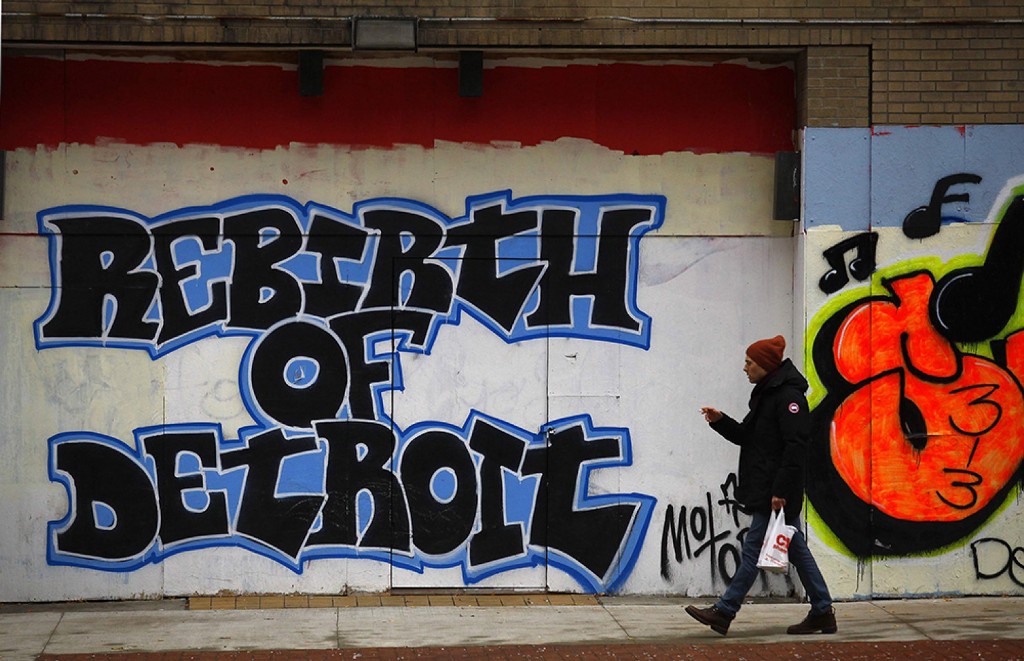Greetings, ImpactAlpha readers!
#Featured: The Brief Quiz
What initial public offering is about to list on the London Stock Exchange? Why did Queensland launch a social impact bond? What growth market did KKR just invest $31 million in? What’s wrong with Repsol’s green bond? And which rock star of impact investing did ImpactAlpha take on in our latest podcast?
Test your Impact IQ (or catch up on what you missed) with this week’s Brief Quiz (№14) from Jérôme Tagger:
What change is afoot in the world of healthcare? Take the Brief Quiz (№14)
#Dealflow: Follow the Money
J.P Morgan adds $50 million to finance the revitalization of Detroit. And this time, more of the capital will be commercial, rather than the subsidized capital that comprised most of the bank’s $100 million commitment in 2014. CEO James Dimon said he has been encouraged by how quickly its first round of loans was being repaid. Much of the new investment will be focused on the city’s neighborhoods, which haven’t participated in the building boom in Detroit’s downtown core. The $50 million commitment will back investment in small businesses and neighborhood development projects. J.P. Morgan’s first round of capital — a mix of grants and loans — was a rare source of private investment in the Motor City after it declared its $18 billion municipal bankruptcy. “When we started three years ago, most of the projects we were investing in were subsidized capital,” J.P. Morgan’s Peter Scher told The Wall Street Journal. “By late 2015, that changed to market capital.”
New $2.6 billion Chinese venture fund targets energy conservation and environmental protection. China has been tightening environmental laws to curb high levels of pollution, encouraging investors in sustainable energy and pro-environment opportunities. The government-led venture capital fund will also back information technology and manufacturing ventures. The new fund was launched by the Ministry of Finance, the National Development and Reform Commission, and the State Development and Investment Corporation. Eighty percent of the fund will focus on early-stage startups, the rest on more mature private companies. State-backed venture capital funds raised more than $230 billion in 2015.
UnLtd winds down Big Venture Challenge, stands up social venture acceleration. The U.K. charitable foundation is planning to expand its social enterprise accelerator and scale up funding at the same time it ends its Big Venture Challenge. The nonprofit is assembling an advisory group of investors, donors, policy makers and alumni of the Big Venture Challenge to direct its Ventures growth strategy. Big Venture Challenge, a four-year program that worked with social startups to attract and match capital, supported 120 social ventures, which each raised between £50,000 and £250,000 from 170 investors. Nine out of 10 of the startups UnLtd supported are still up and running. Among small businesses generally, 40 percent fail in the first five years.
Editor’s note: We jumped the gun on the move “from billions to trillions” in our story on ‘sustainable ETFs’ on Wednesday. The assets in such ETFs total about $4.2 billion, not $4.2 trillion. Oops!
See all of ImpactAlpha’s recent #dealflow.
#Signals: Ahead of the Curve
Investing in social justice. Bryan Stevenson, the public interest lawyer who heads the Equal Justice Initiative in Montgomery, Ala., got a standing ovation at this week’s US-SIF conference. “Linking social justice and finance felt like a very important intersection achieved here,” Enclude’s Jan Piercy reports from Chicago. Stevenson, the author of Just Mercy, told the crowd of social investors, “We cannot make progress without changing the narrative.” To help do so, Pat Miguel Tomaino of Zevin Asset Management, a Boston-based investment advisor managing about $500 million in assets, has laid out a racial-lens investing manifesto. Zevin screens out companies that exploit minority and economically-disadvantaged communities, by profiting from mass incarceration, for example. Last year, Zevin pressed Starbucks and Target Corporation to disclose or develop so-called Fair Chance Hiring policies. McKinsey says firms with racial diversity have better than average returns. Dalberg has found tech firms could boost revenues by hundreds of millions of dollars with workforces that fully reflect the talent pool.
#2030: Long-Termism
How one small city is mapping its future to the 2030 global goals. Cauayan City in the Philippines wants to be a poster child for the Sustainable Development Goals. The city of 130,000, about 250 miles north of Manila, has laid out plans for education, healthcare, environmental restoration and sustainable infrastructure aligned with the 17 SDGs. “We extended free access to medical, dental and oral care, maternal, child and environmental health, core shelters, feeding programs, livelihood, educational and financial assistance,” said the city’s mayor, Bernard Faustino Dy.
Cauayan City launched a “Smarter City Project” in partnership with the local university and businesses, which includes “e-tricycles with solar roofs.” Cauayan City, which calls itself the “First Fiber City in the Philippines,” offers free public wi-fi city-wide, and is connecting clinics for rural healthcare delivery. Schools distribute school bags and supplies in all villages and new day-care centers are being built. City Hall ran an 18-day awareness campaign against violence against women and is promoting income-generating and livelihood programs for women. The city’s name is an indigenous word for one of its longest-standing resources: bamboo, a robust and environmentally sustainable crop; Cauayan is capitalizing on it to boost local, sustainable agriculture and local trades.
“Countries all over the world are encouraged to adopt this set of goals as part of their respective development agenda,” Dy said. “That is precisely the reason Cauayan City took the lead and actively initiated the implementation of these goals in the local level.”
That’s a wrap, have a great weekend! Please send any news and comments to [email protected].











